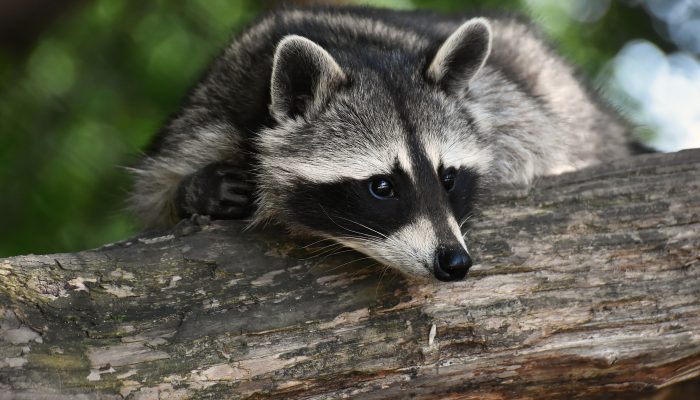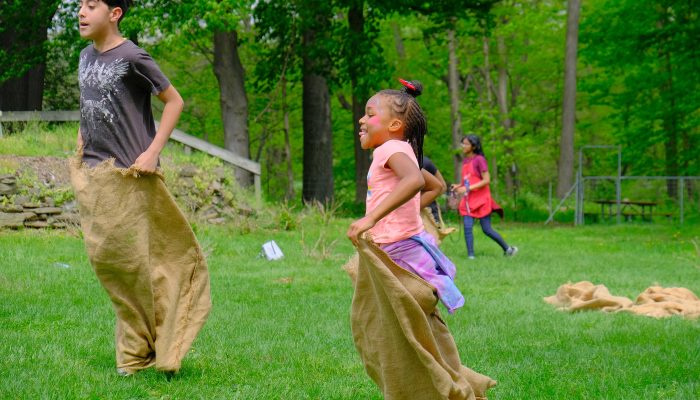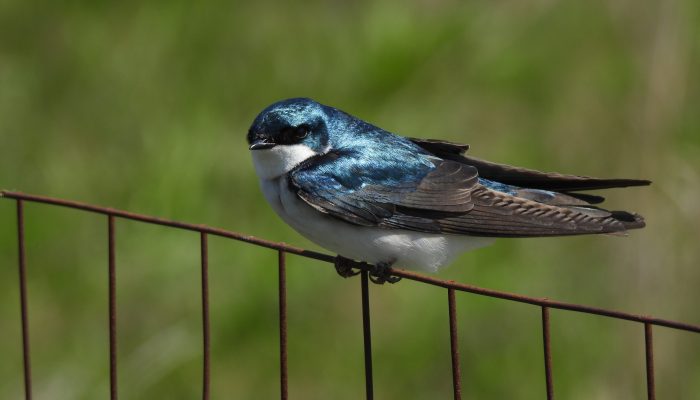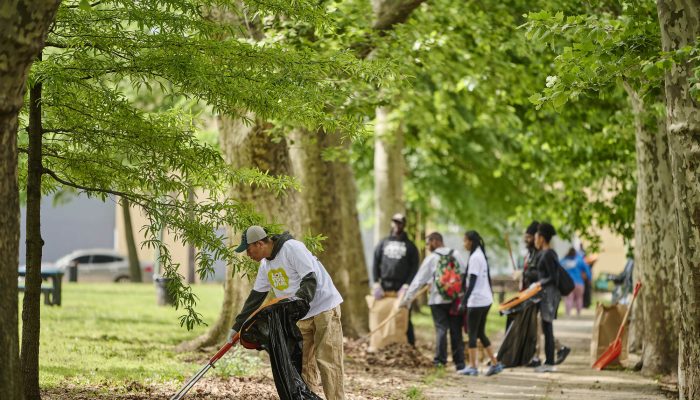By Tony Croasdale, Environmental Educator
Cobbs Creek Community Environmental Center
Philadelphia’s parks have seen an increase in visitors since the COVID-19 pandemic began. That’s given even more people the chance to see the wildlife that lives right here in the city. Our forests, fields, and waterways are home to many types of birds, reptiles, and mammals. Among the wildlife you might see are mammals (animals with fur). In our parks, these include deer, groundhogs, squirrels, raccoons, opossums, skunks, foxes, and rabbits.
Some people panic when they see certain animals in our parks during the day. But there’s no need to worry! Most mammals in our area are partly nocturnal. That means they usually are awake at night. This does not mean that they are rabid, diseased, or dangerous if you see them during the day.
Remember, when you visit our parks, you’re visiting the home of our wildlife. Here’s some guidance on how to be a respectful guest and keep the animals, and yourself, safe.
1) Do not disturb
Our park’s forest and fields are these animals’ homes. When you see animals they may be looking for food or water. Or maybe they’re just out for a walk. Please don’t bother them. Don’t try to pet them. And don’t shoo or scare them away. If frightened, they might run right at you. Remember, you’re in their home. Please respect this.
2) Don’t touch or pet
Never touch an animal you encounter in the park. Wild mammals (animals with fur) should never be handled. You might also see wild dogs and cats. Please don’t touch them either. Dog and cats can have diseases that can infect people, like rabies. Leave this to the professionals.
3) Don’t feed or leave food behind
The animals in our parks have plenty to eat and drink. From plants to other animals, it’s all there for them. Please don’t feed them. It might make them sick. Animals could also become dependent on humans in an unhealthy way. Do not leave food in parks for wild or domestic animals.
4) Call for help
If you find an injured small animal like a snake or bird, call the Pennsylvania Game Commission. Most wildlife is legally protected. It is illegal to remove wildlife from the park. You may be asked to call a wildlife rehabilitation center for instructions. Two resources in our area are Schuylkill Center Wildlife Clinic and Philadelphia Metro Wildlife Center.
5) Fledglings don’t need your help
A fully-feathered baby bird seen on the ground is most likely a fledgling learning to fly. It does not need to be “rescued.” The birds’ parents will feed them on the ground until they can fly. This is a normal part of bird development.
Wildlife rehabilitation centers are filled with “kidnapped” fledglings. Misinformed people removed these birds from the wild. This is well-intentioned, but harmful to the birds.
6) Know what to watch for
Most animals will either run away from you or ignore you. But you might see animals that behave differently. Look out for animals that are:
-
Acting aggressively towards people or pets.
-
Foaming at the mouth.
-
Having difficulty walking.
-
Clearly injured.
-
Visibly wounded or have tumors.
7) Who ya gonna call?
Philadelphia Parks and Recreation has no animal control staff. Here’s who to contact if you see an animal in distress:
If you see: |
Call: |
|
| Animals acting aggressively towards people. | 911 | |
| Domestic animals like stray dogs or injured cats. | Philadelphia Animal Care and Control Team | 267-385-3800 |
| Potentially dangerous, injured, or diseased wild animal like a raccoon or deer. (See #6 “What to watch for,” above). | Pennsylvania Game Commission | 610-926-3136 |
The Pennsylvania Game Commission (PGC) is the state's wildlife agency responsible for managing the state's wild birds, wild mammals, and their habitats for current and future generations.




